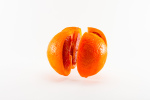 JPEGMini
JPEGMini
What if you could reduce the size of all the jpeg pictures on your hard disk? Do you have problems sending full resolution jpeg images via email because of size restraints? Is your iPhoto library too large? Let’s face it; pictures is one of the things that sucks up space on your drives. It’s even more annoying if you are using a newer Mac with an SSD disk where cost is premium. Upload speed when sending emails or uploading images to the web can be slow and annoying. An application called JPEGMini claims to help you with reducing your pictures with up to five times while retaining all the quality. I got a bit curious if the team at JPEGMini and their patented image compressor really could reduce large JPEG photos without losing quality. I’ve tried the application before when I wrote my article about comparing the best jpeg compressor applications for web use. But even though JPEGMini is geared more towards large megapixel pictures, not small images usually used on web pages, my test shows that it stacks up well against the competition even on more modest photographs. Many web pages now use pictures optimized for high-resolution images like for Retina display and high-resolution mobile devices, so the use of an image compressor is getting even more useful for web use.
But how well does JPEGMini retain quality on megapixel images in JPEG format? How much do you lose in quality by using compressing?
About JPEGMini JPEG Image Compressor
JPEGMini Lite
![]() JPEGMini comes in four versions. First, we have the JPEGMini Lite which you can download for free. With it, you can compress twenty images per day for free. It’s a great way of trying it out and see if it fits your needs. I did download the Lite version and later made an in-app purchase to the full version. My recommendation is to get the full-featured JPEGMini instead, so you don’t have to go through the hassle of reauthorizing it every time the application is updated.
JPEGMini comes in four versions. First, we have the JPEGMini Lite which you can download for free. With it, you can compress twenty images per day for free. It’s a great way of trying it out and see if it fits your needs. I did download the Lite version and later made an in-app purchase to the full version. My recommendation is to get the full-featured JPEGMini instead, so you don’t have to go through the hassle of reauthorizing it every time the application is updated.
JPEGMini
![]() With JPEGMini you can compress images up to 28Mpixel pictures and compress as many images as you like.
With JPEGMini you can compress images up to 28Mpixel pictures and compress as many images as you like.
JPEGMini Pro
![]() Pro version for photographers that work with high-resolution images (up to 50 Megapixels) and need the extra speed, because the Pro version uses multithreading and is up to 8 times faster than the regular version. It also comes with an Adobe Lightroom plugin.
Pro version for photographers that work with high-resolution images (up to 50 Megapixels) and need the extra speed, because the Pro version uses multithreading and is up to 8 times faster than the regular version. It also comes with an Adobe Lightroom plugin.
Adobe Lightroom plug-in
The plug-in for Adobe Lightroom makes it easy to compress your jpg photos when exporting from within the application. A nice touch.
Server version
They even got a server version for websites with image upload capabilities.
Compression

| Image | Filesize MB | Filesize MB Compressed | % of original size |
|---|---|---|---|
| test1 | 6.4 | 2.6 | 41% |
| test2 | 4.5 | 2.9 | 65% |
| test3 | 3.6 | 1.9 | 53% |
| test4 | 8.9 | 2.4 | 27% |
| test5 | 7.4 | 3.1 | 42% |
| test6 | 6.4 | 2.7 | 42% |
| test7 | 5.9 | 2.4 | 40% |
| test8 | 9.2 | 3.9 | 43% |
| test9 | 6.4 | 2.3 | 36% |
| test10 | 5.3 | 2.2 | 41% |
| test11 | 4.5 | 1.3 | 28% |
| test12 | 9.4 | 4.8 | 50% |
| test13 | 13.1 | 6.5 | 50% |
All the images used in this test are from either a 21Mpixel Canon 5D Mark II or my new favorite camera, the venerable Fujifilm X100S. The pictures were exported directly from Lightroom with jpeg quality setting of 100% in full resolution, retaining as much information as possible. I’m using a selection of thirteen different pictures (you can see a gallery of the images used at the end of this post), for some variation of different subject matter to see what kind of picture compresses the best. I’ve included pixel-busy images of Stockholm, but also a studio photo with a lot of white surroundings. So now on to the important question, how good is the quality of the compressed images I used?
Quality
So inevitably the image quality must suffer when doing this kind of compression? I’ve made 100% zoom in on the test images before/after compressing. Therefore, you can see for yourself if the compression has any impact on the picture quality.
These are the pictures is used in my test:
- test13
- test12
- test11
- test10
- test9
- test8
- test7
- test6
- test5
- test4
- test3
- test2
- test1
Speed!
The JPEGMini Pro is a speed demon compared to the standard version. The standard version isn’t slow, but when running the Pro version, all cores on my Intel i7 MacBook Pro goes to 100% CPU usage and the compressed images flashes by in an instant. So if you’re planning to do a lot of compression, the Pro version is the way to go.
Drawbacks
I’ve only found one thing to complain about in this software, and that is that you can’t drag images directly to the application icon. You need to first start the application and then drag the images to the application window or use the open command in the File menu. Hopefully, they will fix this in a later version.
Conclusion
JPEGMini is excellent for freeing up space on your hard disk if you have a lot of large jpg images and is also great when you have to transfer the images over the internet. As you can see in the comparison, there’s virtually no image degradation after compressing images, and the compression ratio is usually more the 50% and often a lot more. You can drag your iPhoto library directly into the JPEGMini window and free up gigabytes of space on your disk. I can’t detect any degradation in image quality when compressed with JPEGMini, so I’m impressed.
I consider JPEGMini a must-have program in my image processing arsenal, and I recommend it. Try out the free trial version first, and I think you’ll agree.













Leave a Reply